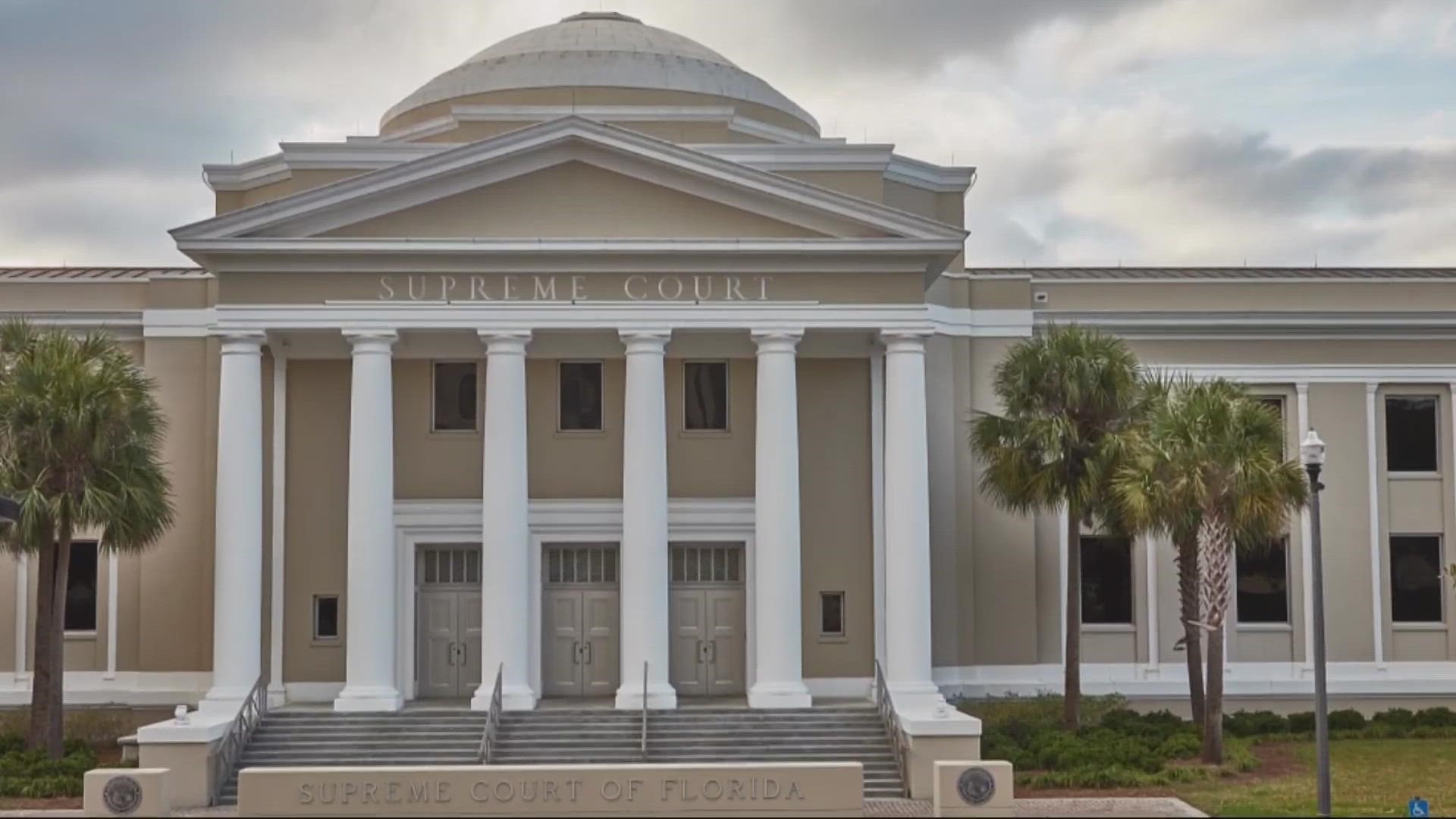JACKSONVILLE, Fla. — First Coast News is taking a deeper look into an order by Florida's highest court. The Florida Supreme Court has dissolved its Standing Committee on Fairness and Diversity and gotten rid of a mandatory diversity training.
The standing committee, which was created by the Florida Supreme Court nearly 20 years ago, focused on education for new judges. The court rules the committee and training are unnecessary because the topics will be covered elsewhere, but a group of lawyers fears the move will hurt people of color in the courtroom.
Ernest Chang is the president of the Florida Association of Criminal Defense Lawyers, which is urging the Florida Supreme Court to reinstate the standing committee. Chang gives the following example of why he believes the training and committee are needed.
"The white defendant got a good break and the Black defendant immediately following, very similar charges, very similar background, was punished significantly more severely," Chang said. "The judge on his own said, 'I'm not going to take this plea. Why is one person being treated differently other? They should be treated fairly.' And I think that is an example of, potentially, where this diversity training educates the judges to be on the lookout for disparity of treatment of defendants."
Chief Justice Carlos Muñiz writes in the new administrative order, "The Court recently adopted policy and rule changes that emphasize the foundational principles of civility, due process, and equal justice under law as part of ethics-related continuing judicial education." He goes on to write the Florida Judicial College will provide nondiscrimination training and the committee "risks inconsistency and duplication of efforts."
Governor Ron DeSantis appointed four of the seven Supreme Court justices and is working to restrict diversity, equity and inclusion programs in higher education. But Nick Seabrook, chair of the political science department at the University of North Florida, does not think there's a connection due to an ongoing dispute between the court and American Bar Association over diversity issues.
"To the extent that there's a connection, I think it's probably a consequence of this broader debate that we're having," Seabrook said. "The fact that these issues are very much being talked about, they're being focused on. I wouldn't say that there's a direct connection other than the fact that this is kind of the hot political topic in Florida."
First Coast News asked the Florida Supreme Court's public information office about the timing of the order. A public information officer states the order and its timing "speak for themselves." He explains justices cannot comment on issues that actively are or could come before the court.

